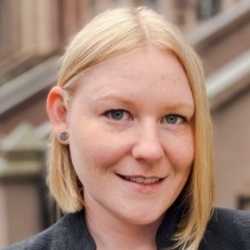Lisa Berglund, Ph.D.

Dr. Berglund’s research and teaching interests are at the intersection of community development and urban design. She focuses on community organizing and social movements in the context of neighborhood change, including processes like gentrification, displacement, and redevelopment. This research engages with communities to understand the policy obstacles and design practices that disenfranchise, and physically and culturally displace some groups from changing neighborhoods, and how these communities resist exclusionary planning practices. She has examined strategies and histories of resistance to environmental racism, and is currently researching the role of community benefits agreements to understand how benefits can be leveraged by communities whose tax dollars often subsidize rapid redevelopment of cities experiencing a ‘back to the city’ movement.
In addition to community organizing, she also examines the material components of the changing built environment in gentrifying areas, and the role of the urban design profession in creating places that are ripe for investment, but play to the exclusion of long standing communities. Through this work she has analyzed strategies like branding, participatory design and public space management to understand the messages embedded in the built environment, and how designers sometimes create sites that are attractive to capital and consumption, but are not inclusive. This work aims to uncover alternative, inclusive and justice oriented design practices, and develop critical urban design scholarship. Currently, she is examining the justice implications of urban design practices related to security and surveillance in privately operated public spaces, and the racial violence associated with such policing practices.
An important component of this work is understanding how communities develop their own ways of resisting, planning and designing through social mobilization and informal economic and placemaking strategies, considering these practices integral to the workings of cities. Drawing on the perspectives of politically marginalized urban populations, her work aims to share narratives of communities that are often left out of planning and design processes, and disproportionately pathologized and treated as objects ripe for policy intervention.